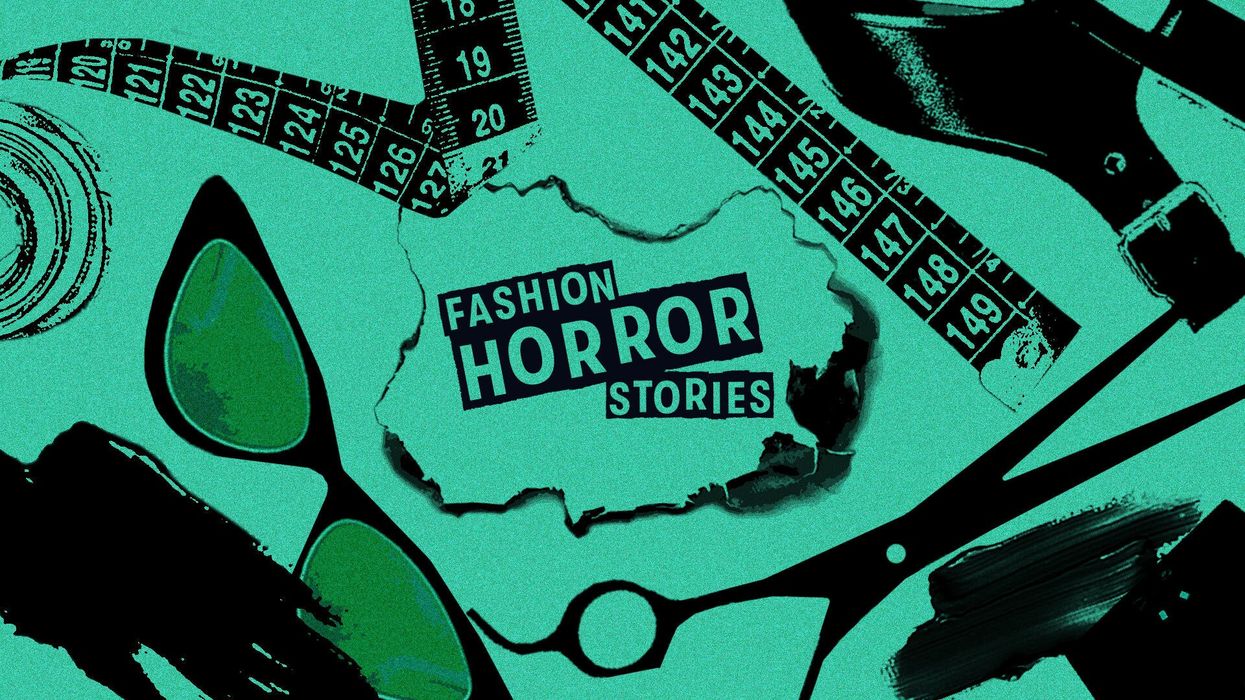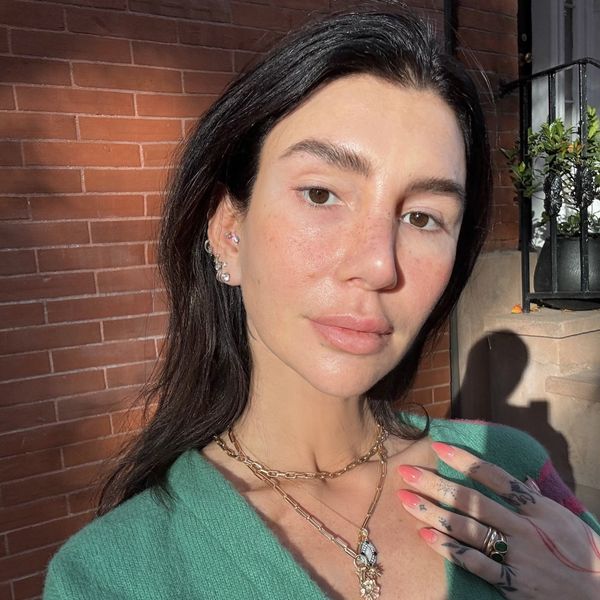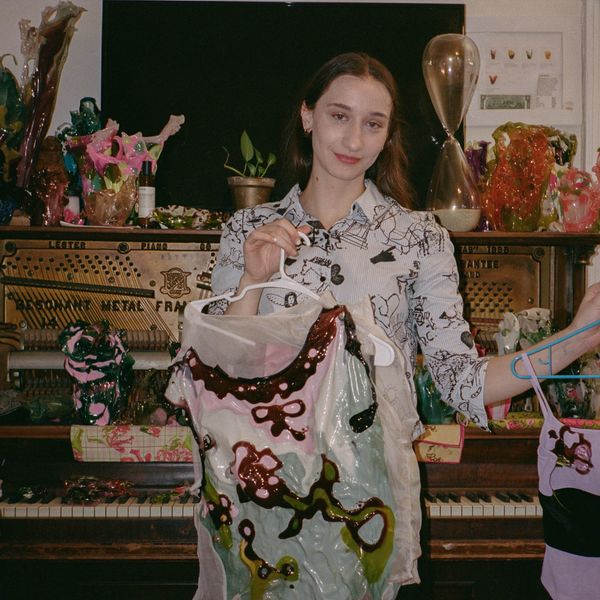When a Prank Becomes a Crime
Lizzie’s experience at an LA magazine went from dream job to nightmare in under a year.

The fashion industry is known for its volatile creatives and unshakable self-seriousness. If you ask anyone who’s worked in fashion or at a magazine if it’s like The Devil Wears Prada, they will likely tell you that’s a G-rated shadow of their lived experience. With our generation’s waning patience with abusive workplaces and megalomaniac bosses, these stories from our collective past are taking on a new light. Often dismissed flippantly as part of “paying our dues,” fashion veterans and current employees alike are re-examining their experiences with newfound clarity. Somehow, even in this relatively progressive era we’ve entered, the fashion industry remains one of the last bastions of unchecked and wildly inappropriate behavior. From former fashion interns to magazine assistants to models, we’re compiling an oral history of fashion workplace experiences in the series Fashion Horror Stories.
After our inaugural segment of FHS featuring Gabriel’s experiences working in Fashion PR in the early aughts New York, here is a portrait of a small, independent LA fashion magazine from 2018. In a post-#MeToo, post-Vogue intern revolt landscape—has anything really changed? Here is Lizzie’s* story:
How did you land your first fashion magazine job?
“Fresh out of college in 2018, I worked as a video intern at this indie arts, fashion, and culture magazine. Even if I said the name of it, you probably wouldn’t recognize it, but it had enough holdover clout from the late 90s to nab some A-list cover stars. Internships were three months long and unpaid (of course), but they skated on the resume-building appeal and the lure of working on set with talent.
“They rarely hired interns onto the staff, but I was determined and had the post-college inertia to start working crazy overtime to make an impression. They made it clear that they only respected people that would devote their whole life to the job. Anyone that left at 6 p.m. was considered lazy, and they made a show of firing people that wouldn’t ‘go the extra mile.’ They once fired an editor who had a pregnant wife at home because he wasn’t working enough unpaid overtime. Near the end of my internship, I started picking up the slack on writing articles. When they fired one of the editorial assistants, I got her position. I had grown somewhat close to her during my internship and felt guilty about how it all went down—not quite Andy Sachs taking Emily’s trip to Paris, but it was uncomfortable.”
I was once asked to go to IKEA to replace the lamps in the conference room, and when I asked what happened to the old ones, someone told me they’d been thrown out the window during a fight.
What were some red flags you noticed early on?
“There were so many red flags I’m surprised I didn’t run for the hills. I guess when you’re trying to get your foot in the door anywhere, it’s easier to shrug off the warning signs. It was my first real job so I had no barometer for what was appropriate—all I knew was that it was a cutthroat industry and ‘paying my dues’ was going to be hell.
“The CEO and Editor-in-Chief would often get into blowout fights—near-daily screaming matches, doors slamming, profane insults—in our small office floor, and everyone would just fall silent and try not to make eye contact. I was once asked to go to IKEA to replace the lamps in the conference room, and when I asked what happened to the old ones, someone told me they’d been thrown out the window during a fight.
“This is kind of a disgusting detail, but on the first day of my internship, there was a big shit outside the front door. It was unmistakably from a person and definitely left to send a message to the magazine. There were so many cases of unpaid invoices and ‘disgruntled former employees’ that it became clear quite quickly that I was dealing with people that weren’t afraid to make enemies.
“There was no HR system in place, that should have also been a bigger red flag from the get-go. The CEO and Editor-in-Chief would often chastise the staff about their appearance, clothing, and make wildly inappropriate sexual jokes. They would openly harass and hit on the male staff members and grill people about their dating life. When a queer female staff member talked about dating, they would make lewd hand gestures (I’ll let you guess which) and talk about how hot her girlfriend was. It was all very fratty behavior that they dismissed as “all in good fun.” At the time in Hollywood, there were ambient discussions about #MeToo and #TimesUp and they would often chastise the movement but saying ‘More like “Me Also!” “Me Please!”’ If you confronted them about their ‘jokes’ they would openly make fun of you and mock you for days on end.
“One day at work, the CEO came into our offices laughing uncontrollably and showing each of us a video on his phone. I watched the reactions on my co-workers' faces. They looked shocked and then laughed uncomfortably. When he showed me the video I saw a man walking on the edge of a cliff, slipping, and falling to (what I can only assume to be) his death. The CEO was in stitches over the video. Looking back, that was a moment that should have raised more red flags.”
What was the work environment like? What was your relationship to your coworkers?
“The environment was incredibly intense—long hours, unpaid overtime, even on weekends. The workload was brutal and we were paid illegally small amounts. Producing a full magazine every two months with such a small staff was a huge undertaking, but we were unified in our dedication to the quality of our work. There was a certain level of trauma-bonding amongst the staff but a general sense that you couldn’t really trust anyone. The approval of the CEO and/or Editor in Chief was the only job security you had, so co-workers were quick to throw you under the bus.
“When the interns left for the day, the staff would work for hours after six, sometimes until 11 p.m. on weeks when we were finishing an issue. We could smoke cigarettes at our desks. There was open substance—cocaine, mushrooms, alcohol, weed. There was an unspoken understanding that if the higher-ups offered drugs, you were someone they considered in the ‘inner circle.’ Oftentimes the magazine threw events where we worked the door until 2 or 3 a.m. The flagrant substance abuse and late hours quickly dissolved normal professional boundaries. There was an implicit understanding that if you were someone that objected to the ‘lifestyle,’ then you weren’t a good ‘fit’ for the company’s ‘culture.’ You quickly learned who our CEO’s coke dealer was on-sight to let him into parties or through the back gate of the office.
“A majority of the interns were young women. More opportunities were granted to the interns they deemed were a ‘good look to represent the magazine,’ which was a discreet way of saying they were conventionally attractive. Working the door at parties, they told us explicitly that, even when we were at capacity, we were still to allow ‘hot girls’ in. They told us they didn’t care if they were underage or not. They were knowingly serving minors alcohol and we weren’t supposed to object. Aside from myself, there were only about two-three other female staff members. The CEO would often comment on our bodies and outfits—I assume he thought he had carte-blanche to do so since he was an openly gay man. He once complimented my ‘cinched-waist’ outfit and spanked me as I left the room.
“When I first started, there was an open position for the CEO’s assistant. I recommended my friend Ben* (they/them) for the job. The CEO met them at an event, complimented their looks, put his arm around them and whispered ‘thank you’ to me. Ben was hired within the week. Ben and I were always privy to the predatory humor, but maybe out of naivité or a blind desire for a foothold in the creative industry, we often dismissed the behavior as ‘outrageous.’ I deeply regret getting Ben involved with the magazine, but I don’t think either of us had any conception of how bad it could really get.”
The flagrant substance abuse and late hours quickly dissolved normal professional boundaries. There was an implicit understanding that if you were someone that objected to the ‘lifestyle,’ then you weren’t a good ‘fit’ for the company’s ‘culture.’
When did the behavior start crossing a line?
“It’s hard to identify a single moment the behavior crossed a line, it was more of a ‘frog in hot water’ situation. We didn’t realize how severe the situation was until we were in way over our heads. I judge myself in retrospect for not leaving earlier, but the conditions were so extreme, I started to lose touch with what was normal. Working ungodly hours for very little pay, we were simply exhausted past the point of having time to take stock of the surroundings. I had no time for a life outside the magazine and cut off from friends in a way that deprived me of a reality check.” [A note to any readers: if your boss uses “we’re a family here” as a means of manipulating you into more work, you’re in trouble.]
“The inappropriate behavior and broken boundaries quickly devolved into flat-out abuse. There was one night Ben declined drugs and as a ‘prank’ the Editor-in-Chief fed them mushroom chocolates, pretending they were normal chocolate. Another day at work, Ben showed up after a party the night before at the CEO’s house. They had a lump under their sweater’s neckline. When I asked them what it was, they sheepishly took out a padlock that had been chained around their neck. They explained that, as a joke, the CEO had locked the padlock and threw the key off a balcony during the party. Whether they ended up going to a locksmith or eventually found the key, I can’t remember—but that should give you an idea of the daily chaos we were facing.
“Oftentimes, the CEO’s biggest transgressions against Ben were followed with lavish gifts of designer clothes. When they could sense our growing reticence, they would start promising us bigger positions at the magazine, new offices, raises, etc. The promises got bigger as their behavior got progressively more inappropriate. With overtime hours in party atmospheres, there was a litany of sexual advances made on the part of the CEO and Editor-in-Chief to staff members and interns. The predatory behavior quickly started crossing physical boundaries.”
“The inappropriate behavior and broken boundaries quickly devolved into flat-out abuse. There was one night Ben declined drugs and as a ‘prank’ the Editor-in-Chief fed them mushroom chocolates, pretending they were normal chocolate
Was there a moment you reached your breaking point?
“At one party, our Editor-in-Chief was blackout drunk and on a lot of substances. He was making overt sexual advances towards me which had become quite routine at events like this. I don’t feel comfortable sharing the exact details, but this behavior had escalated in severity over the months and I was constantly in fear that when I pushed back, I was jeopardizing my job. In this particular blackout, he walked up to Ben at the party and slapped them hard in the face. I tried to grab his arm and pull him back but he shook me off and slapped Ben two more times. Then, he grabbed Ben by the face, viciously made out with them, and then stumbled away. I saw him later escorting one of my female interns into the bathroom and she did not show up to work for three days after that.
“Following that night, Ben and other staff members (including said intern), and I met up outside of work to discuss the behavior. It was the first time we openly discussed our individual experiences with the CEO and the Editor-in-Chief, and upon hearing the extent of the abuses to the staff, we quickly saw there was clearly a much greater pattern of behavior than each of our own experiences. Without sharing too much, the sexual abuse was habitual and severe. Without an HR department, Ben and I confronted the CEO and Editor-in-Chief directly. While we were planning an exit strategy, we didn’t want to leave the issues unaddressed, knowing so many people would come through those doors after us. Their response was largely dismissive and the CEO was openly irritated and combative.”
How did you end up leaving that job? What did you learn from the experience?
“After confronting them about their behavior, a large portion of the staff quit. Although the other staff members were informed of what was happening, a lot of them stayed at the magazine. There was some part of me that understood why it was so difficult for them to leave—the circumstances that created a kind of cult-like devotion made it very difficult to part ways. We all worked so hard that I can only assume there was a sunken-cost fallacy at play.
“Looking back, it would have made sense to quit cold turkey but I decided to put in a two weeks notice because I didn’t want to leave my already overtaxed coworkers with an incomplete magazine. When I met with the CEO and Editor-in-Chief to announce my departure, they were furious. I was told I had a promising future at the magazine that I was throwing away and would never get a better offer. In an attempt at diplomacy I told them I was, ‘Moving on to go in a different direction with my career.’ The Editor-in-Chief began to ridicule me, saying that the work I’d done in the past year was little more than an internship and an insignificant part of a resume. I sat there quietly while he belittled me, referring to my ‘so-called career’ in air quotes and telling me I was making a huge mistake.”
The most disturbing aspect of this whole ordeal was that after the legal action and several news stories, the CEO and Editor-in-Chief are still in their same positions operating the magazine. It would be easier to process what we’d been through if it had been in service of stopping their behavior, but it all blew over without any consequence.
What happened in the aftermath of you quitting?
“Ben, in addition to the CEO’s subsequent assistant, filed a lawsuit against both the CEO and the Editor-in-Chief for the abuses they suffered. Ben wasn’t interested in money and just wanted to take action to ensure that no one else would be put in a similar situation. I chose not to sue, although in retrospect, I definitely could have. This was all happening in the wake of the Christine Blasey Ford case, and the thought of legal action terrified me. Instead, I opted to write testimonials on Ben’s behalf and I was served a subpoena at my new job—Ben’s lawyers informed me that the magazine likely wouldn’t have the money to take this to court, so I can only assume this was a scare tactic. Although Ben wasn’t interested in settling, they were pushed to by the lawyers because of mounting legal fees, and the other former assistant involved had a desire to settle.
“The most disturbing aspect of this whole ordeal was that after the legal action and several news stories, the CEO and Editor-in-Chief are still in their same positions operating the magazine. It would be easier to process what we’d been through if it had been in service of stopping their behavior, but it all blew over without any consequence. People in the industry still work with them and they continue to have A-list talent on their covers. That was, and continues to be, one of the most disturbing aspects of the entire experience.
“I know talking to people who were in similar ‘Fashion Horror Story’ scenarios, we all struggled with depression, panic attacks, and recurring nightmares. Despite the traumatic elements of the situation, I tried not to let that rob me of the pride I took in the work I did while I was there. They can do petty things like remove my byline from all my stories online, but most of us cared very deeply about our jobs and the work we did was very much a labor of love.”




